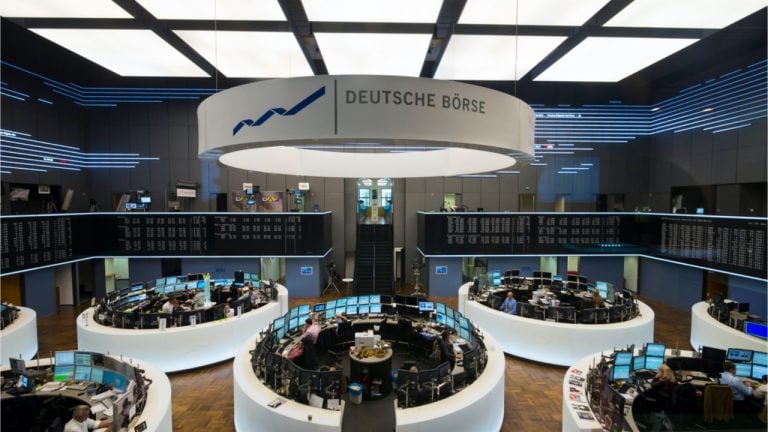 On Tuesday, Deutsche Börse Group, marketplace manager for the trading of shares and other securities, explained the company has acquired a major stake in Crypto Finance AG. The move adds to Deutsche Börse’s extension into the cryptocurrency industry in order to provide custody solutions and a “direct entry point for investments.” Deutsche Börse Group to […]
On Tuesday, Deutsche Börse Group, marketplace manager for the trading of shares and other securities, explained the company has acquired a major stake in Crypto Finance AG. The move adds to Deutsche Börse’s extension into the cryptocurrency industry in order to provide custody solutions and a “direct entry point for investments.” Deutsche Börse Group to […]
More publicly traded firms added Bitcoin to their treasuries during the first four months of 2021 than during the entirety of last year. But will it continue?
More than $6.5 billion worth of BTC — or close to 1% of the crypto asset’s entire capitalization — is held by 19 publicly-listed companies. A further 5.75% of Bitcoin’s market cap is held by exchange-traded products and closed-ended trusts.
The figures are contained in a new study by Nickel Digital Asset Management. The 19 firms cited are worth a combined market cap of more than $1 trillion, with 13 based in North America, three domiciled in Europe, and the remainder in Turkey, Hong Kong, and Australia. Seventeen other listed companies have purchased BTC, however details regarding their allocations are not available.
The study shows that institutional adoption of crypto is on the rise, with eight listed companies purchasing Bitcoin during the first four months of 2021 compared to seven during all of 2020.
Beyond the treasuries of listed firms, the study identified that $43.2 billion worth of BTC — equivalent to nearly 6% of Bitcoin’s market cap — is held by ETPs and trusts.
In Hedgeweek, Nickel’s CEO and co-founder, Anatoly Crachilov argued that a combination of the COVID-19 crisis and expansionary monetary policies from central banks has heightened the risk of currency debasement, adding:
“This, coupled with the increasingly inflationary guidance by Fed and an ever-expanding pile of US $18 trillion of negatively yielding global bonds, has encouraged many corporations to contemplate an allocation to alternative assets.”
Research from Nickel carried out earlier in the year, prior to the recent downturn, suggests institutional crypto allocations will continue to grow, with 81% of European wealth managers and institutional investors indicating they expect to see an increase in Bitcoin held among corporate reserves.
Crachilov asserted the growing trend of institutions allocating Bitcoin to their treasuries will tame crypto’s price volatility over time. “Increasing allocations by large-scale institutional and corporate players is expected to lead to a reduction of this volatility over time, thanks to a longer-term, stickier type of capital brought by those investors, as well as a much larger liquidity pool of crypto ecosystem,” he said.
However, not everyone agrees that institutions are champing at the bit to gain exposure to crypto, with JPMorgan analyst, Nikolaos Panigirtzoglou asserting the recent premium observed in the spot markets over futures prices indicates institutional demand is waning.
According to BitcoinTreasuries, a further $13.5 billion worth of BTC (1.8% of Bitcoin’s supply) is held in the treasuries of four private companies — Block.One, The Tezos Foundation, Mt Gox, and Stone Ridge Holdings Group.
The website also estimates the government of Bulgaria is sitting on roughly $8.5 billion worth of Bitcoin, while Ukraine’s government hotels $1.8 billion in BTC.